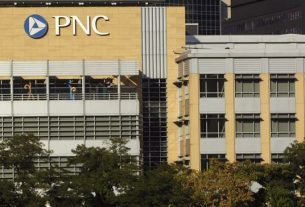The saga surrounding the collapse of the once-prominent cryptocurrency exchange FTX has taken a dramatic turn as the estate of the now-bankrupt company files a $1.76 billion lawsuit against Binance and its former CEO, Changpeng Zhao (CZ). The lawsuit, which was filed on Sunday in a Delaware court, centers around an alleged fraudulent share deal that occurred in 2021, when Binance, Zhao, and other parties exited their investment in FTX.
At the heart of the legal dispute is the sale of a 20% stake in FTX and an 18.4% stake in FTX’s U.S. subsidiary, West Realm Shires, back to the company. The FTX estate claims that this transaction was fraudulent and conducted under misleading circumstances, raising serious questions about the role Binance and its leadership played in the downfall of FTX.
The lawsuit, which could have far-reaching implications for Binance, Zhao, and the broader crypto industry, adds yet another layer to the unraveling of what was once one of the largest and most influential crypto exchanges in the world. Here’s a breakdown of the key details, the legal arguments, and the potential ramifications of the case.
The 2021 Deal: Binance’s Exit from FTX
The contested transaction dates back to 2021, when Binance, which had initially invested in FTX, agreed to sell its holdings in the platform. The deal involved Binance selling a 20% stake in FTX and an 18.4% stake in West Realm Shires, the company that operated FTX.US, the U.S. arm of the exchange. FTX, which at the time was valued at $32 billion, bought back these shares as part of a larger transaction to regain control of the company and its U.S. operations.
According to FTX’s estate, this sale was not conducted in a fair manner. The estate claims that Binance and Zhao misrepresented the value of their shares and the overall financial health of the company during this transaction, arguing that it was designed to benefit Binance at the expense of FTX. The lawsuit alleges that the deal was structured in a way that disguised the true value of FTX’s operations and inflates the price at which Binance exited the investment.
Furthermore, the estate contends that the deal involved elements of fraud, asserting that the sale was designed to disguise potential conflicts of interest and to shield Binance from the consequences of its actions in relation to FTX. The filing raises significant concerns about whether Binance may have been aware of the liquidity problems at FTX and potentially played a role in contributing to the eventual collapse of the exchange.
The Legal Basis: Alleged Fraud and Breach of Fiduciary Duty
In its filing, the FTX estate alleges several key legal violations by Binance and Zhao, including fraud, breach of fiduciary duty, and unjust enrichment. Specifically, the estate claims that Binance and Zhao engaged in fraudulent conduct by misrepresenting facts related to the value of their shares and the status of FTX’s business, which led to a material miscalculation of the transaction’s true worth.
The fraud allegation is based on the premise that Binance, under Zhao’s leadership, misled FTX’s leadership about the financial health of the exchange and the stability of its operations. The lawsuit points to misstatements or omissions made during the 2021 transaction, including possibly downplaying risks related to liquidity and regulatory compliance.
FTX is also alleging that Zhao and Binance breached their fiduciary duties as investors in FTX. As an investor, Binance had a responsibility to act in the best interests of the company and its shareholders. FTX claims that Binance’s actions in orchestrating the 2021 share buyback deal amounted to a breach of trust and violated this duty.
Finally, the unjust enrichment claim argues that Binance unjustly profited from the sale by obtaining a premium price for its stake in FTX, which was later shown to be inflated due to the company’s financial issues. This claim seeks to reverse the financial benefits Binance gained from the transaction and return them to the estate.
The Role of Binance and Changpeng Zhao in FTX’s Collapse
FTX’s bankruptcy, which became public in November 2022, has been one of the most high-profile collapses in the history of the crypto industry. The exchange’s founder, Sam Bankman-Fried (SBF), was arrested and charged with multiple counts of fraud, money laundering, and violations of campaign finance laws. The fallout from the collapse left billions of dollars in losses for investors, customers, and creditors.
Binance, which at one point was the largest competitor to FTX, has found itself in the crosshairs of FTX’s legal team due to its involvement in the 2021 share deal. Binance’s role in the wider crypto ecosystem, particularly its ties to FTX, has come under intense scrutiny. Zhao, who was once considered a close ally of Bankman-Fried, has faced questions about whether Binance played a role in the downfall of FTX, particularly as Binance pulled out of a potential acquisition of FTX shortly before the exchange’s bankruptcy.
As part of the lawsuit, FTX is questioning whether Binance’s actions and those of its CEO were predatory, and whether the company’s role in exiting FTX had a hand in destabilizing the exchange. In particular, the timing of the 2021 deal, just a year before FTX’s collapse, is being examined for potential conflicts of interest.
Potential Impact of the Lawsuit
The lawsuit filed by FTX’s estate could have significant legal, financial, and reputational implications for both Binance and Changpeng Zhao. If the court finds in favor of the estate, Binance could be forced to return a significant amount of money—potentially as much as $1.76 billion—to FTX’s creditors and shareholders.
The case also raises larger questions about accountability and transparency in the cryptocurrency industry. As regulators continue to crack down on crypto exchanges and seek to establish clearer frameworks for digital assets, the outcome of this lawsuit could shape future legal precedents for crypto-related disputes.
For Zhao and Binance, the lawsuit may complicate their standing in the industry, especially as Binance faces mounting regulatory pressure from governments around the world. Binance has faced multiple investigations in the U.S. and other jurisdictions over issues ranging from money laundering to non-compliance with financial regulations, and this lawsuit could further fuel those concerns.
The Bigger Picture: Crypto Industry Reforms and Legal Precedents
This lawsuit is just one of several legal battles unfolding in the aftermath of the FTX collapse. It underscores the need for greater regulation and oversight in the cryptocurrency space, where lack of transparency and unregulated financial practices have led to significant losses for investors and customers alike.
The outcome of this case could influence future litigation within the crypto industry, as it may set a precedent for how disputes involving crypto exchanges, investments, and shareholder agreements are handled in court. Given the complexity and scale of the digital asset market, the case could be pivotal in shaping the way the law approaches crypto fraud and investor protection in the future.



